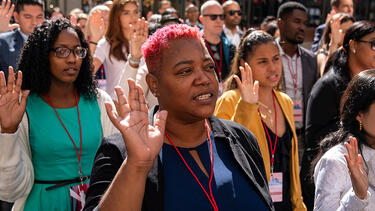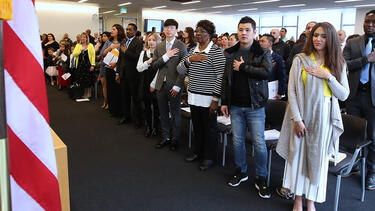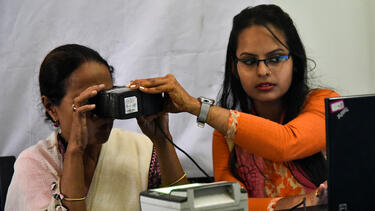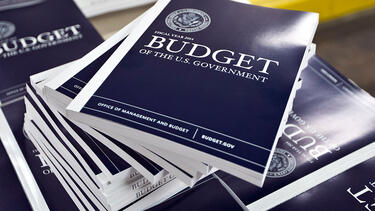Public Policy
Can Industrial Policy Help Revive Struggling Regions?
A new paper co-authored by Yale SOM’s Cameron LaPoint looks at an effort in 1980s Japan to narrow economic inequalities between geographic regions, in order to understand the potential impact of the similar U.S. CHIPS and Science Act, enacted in 2022.

Don’t Use COVID-19 as an Excuse to Turn Away Skilled Immigrants
The Trump administration is reportedly planning to limit immigration for skilled workers in order to boost employment for domestic workers. Yale SOM’s Jeffrey Sonnenfeld writes that such a move would stifle innovation and even endanger Americans’ health.

What Is the Impact of Trump’s Immigration Order?
We asked Cristina Rodríguez of Yale Law School, whose research interests include immigration law and policy, to explain the consequences of President Donald Trump's April 22 proclamation on immigration during the COVID-19 crisis.

Faculty Viewpoints: The Public Health Response
In an online discussion, Yale faculty members discussed what’s missing from the public health response to COVID-19 and offered visions of the post-pandemic world.

Keeping a Close Eye on Local Governments’ Finances Can Improve How they Govern
Yale SOM’s Anya Nakhmurina found that fiscal monitoring policies, which require a state office to review local governments’ finances, boosted municipalities’ financial health and reduced corruption convictions of local officials.

Can Big Data Fight a Pandemic?
The COVID-19 crisis has intensified the debate over big data and privacy. Governments are pulling together data from public and private systems in order to predict and counter the spread of COVID-19. But setting aside privacy protections in a time of crisis could lead to new, permanent norms.

What Happens When a Billion Identities Are Digitized?
The success of India’s Aadhaar, a biometrically secured national identification system, has ignited a debate over whether any entity, public or private, should have the ability to pool our full digital profiles.

Study Suggests That Local Chinese Officials Manipulate GDP
A study by Yale SOM’s Frank Zhang suggests that local Chinese governments often push through projects without long-term economic value, or fabricate numbers outright, in order to meet GDP targets.

Should We Worry about the Trillion-Dollar Deficit?
We asked William English, a professor in the practice of finance and a former economist at the Federal Reserve, how the deficit and the ballooning national debt affect the economy and the ability of Congress and the Fed to fight future recessions.

Aspiring to Be the Next Silicon Valley? Think Twice
A study by Yale SOM researchers suggests that when venture capital funding in a metropolitan area increases, industries with customers outside the region suffer and income inequality widens.

Should Government Run on Rules or Principles?
Janhabi Nandy ’09, an official at the Treasury Board of Canada, makes the case that a nuanced, principle-based approach can make government more effective.
